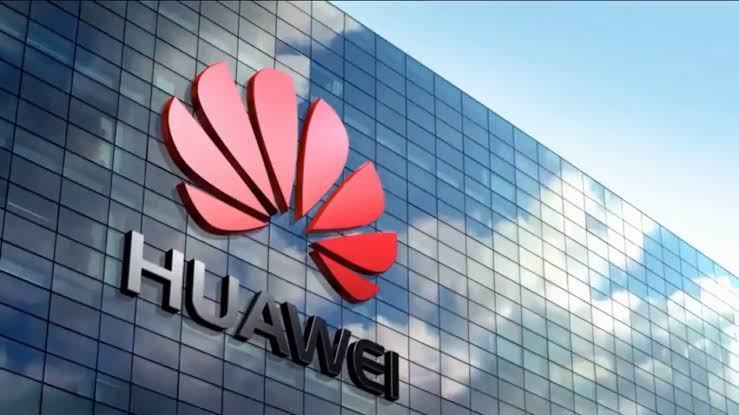ICT
Will 2016 lift local content growth in Nigeria?
Published
8 years agoon
By
Olu Emmanuel
By ADEDEJI ADEYEMI FAKOREDE
ONE of the major challenges to growing Nigeria’s Information and Communications (ICT) sector in the past years has largely been apathy for indigenous products and services.
This challenge had bedeviled the business of local information technology players in the country, from hardware to software and to services; it had been the same story.
Local content aimed to achieve the development of local skills, technology transfer, use of local manpower and manufacturing. It is defined as the amount of incremental value added or created in Nigeria through the utilisation of Nigerian human and material resources for the provision of goods and services in the ICT industry within acceptable quality and standards in order to stimulate the development of indigenous capabilities.
A reliable industry source informed that Nigeria may have ceded about 70 per cent of the country’s technology market to the foreign brands due to apathy for locally made products.
The question therefore is if government is shying away from championing this cause, who then will? Suffix to say that the onus of this task rest with the government of the day to come out with policies and implementation that will bring recognition to indigenous creativity and protect Intellectual Property.
Though, this development has been attributed to the lack of appropriate policy formulation, The Guardian however, gathered that a lot of policies and directives had previously been put in place by the government.
It must however, be mentioned that this challenge is not limited to the ICT sector alone, while the oil and gas sector has successful fight and won the battle, othersectors of the economy continued the struggle.
While the Nigerian ICT hardware and services industry was estimated to worth $39.7 billion in 2014, and forecast to grow to $144 billion by 2020, documents from the Ministry of Communications revealed that foreign brands have continued to make huge money from Nigeria without measures.
According to it, major multinational ICT hardware manufacturers such as Samsung, Acer; HP; Dell; Asus; Toshiba and Lenovo among others currently account for 70 per cent of sales in the market, which has not been reciprocated.
However, the document revealed that a handful of indigenous brands including Zinox Computers; Omatek Computers; Brian Integrated Systems, make up the remaining 30 per cent.
Early 2015, the country was said to be losing to the continued importation of ICT hardware and services about $2 billion (N320 billion) yearly as capital flights from the country.
During his visit to Omatek Ventures in Lagos, the Minister of Communications, Adebayo Shittu, did mentioned that local content development would be a major focus of his administration, with a plan to unveil a blueprint that will see to its implementation.
Shittu said the blueprint, which would be unveiled in the third week of January 2016, would among others focus on further developing the ICT sector, with special attention on local content growth.
The minister said there wouldn’t be much departure from some of the foundations already laid by the former minister, Dr. Omobola Johnson.
“By January, the blueprint for ICT development in Nigeria will be unveiled. Whatever is on ground would form part of it. The change mantra is to improve on regulations in the industry,” he stressed.
While commending the efforts of indigenous ICT players including Omatek for what he described as a pioneering role in the sector, Shittu promised that all efforts would be channel towards ensuring that their products and services get patronage in the country.
Indeed, before she left office, the former minister of Communications Technology, Johnson did disclosed that the ministry was working to achieve 50 per cent growth in local content in Nigeria by 2017. A ministry’s source said the Federal Government through the Office of the National Content might require foreign OEMs to achieve 50 per cent local content in their make up.
According to him, the Federal Government wanted foreign OEMs to achieve 50 per cent local content instead of shipping in boxes or systems that have already been produced in other countries. He emphasized that government actually wanted international brands to establish factories in Nigeria or partner with any local operators or by buying components of their systems that are produced by local manufacturers.
The source said part of the guidelines would be that foreign brands maintain in-country research and development departments for the purpose of product conceptualisation, innovation, adaptation, and design and prototype development.
Shittu assured that a local content development policy would be implemented to protect indigenous players in the industry.
According to him, the ministry would galvanise right policies that would see to the need of Small and Medium scale Enterprises (SMEs), stressing that government’s role is to provide enabling environment within a free market economy.
Receiving the minister, the Chief Executive Officer of Omatek, Florence Seriki, reiterated the need for government to encourage patronage of local products, stressing that this was key to ensuring economic growth.
Seriki urged Shittu to carry stakeholders along in the drive towards achieving sustainable ICT sector in the country.
Seriki stressed that it was also important to see how indigenous IT players can be more involved in major IT projects by the government.
Former President of the Institute of Software Practitioners of Nigeria (ISPON), Chris Uwaje, said the issue of local content development in the country must be taking with all seriousness. He stressed that Nigeria should not remain a consuming nation, but productive and exports its products and services to other countries. “Nigeria should not be a dumping ground for all forms of technologies, Nigerians are good intellectually, we can also export our inventions and innovations abroad, but government factor is key in achieving this objective.”
You may like


Manufacturing, ICT, other sectors to benefit more from Naira stability–expert


Telecom leads as ICT contributes 15.97% to Nigeria’s GDP in Q3, 2023


2023 Elections: Pantami inaugurates committee for cyberspace and ICT infrastructure protection


Huawei trains 2,000 youths, civil servants on ICT


Jonathan challenges ECOWAS on use of ICT for credible elections


FG stops cash payments in NIPOST offices across Nigeria
Trending

 Football1 day ago
Football1 day agoGuardiola advised to take further action against De Bruyne and Haaland after both players ‘abandoned’ crucial game

 Business1 week ago
Business1 week agoDollar crashes further against Naira at parallel market

 Business1 week ago
Business1 week agoRecapitalisation: Zenith Bank to raise funds in international capital market

 Education1 week ago
Education1 week agoArmy reveals date for COAS 2024 first quarter conference

 Crime1 week ago
Crime1 week agoFleeing driver injures two on Lagos-Badagry expressway

 Covid-191 week ago
Covid-191 week agoBritish legislator demands Bill Gates, other ‘COVID Cabal’ faces death penalty

 Latest5 days ago
Latest5 days agoIsrael pounds Hezbollah with airstrikes after Iran attack

 Business1 week ago
Business1 week agoZenith Bank surpasses N2trn earnings milestone

